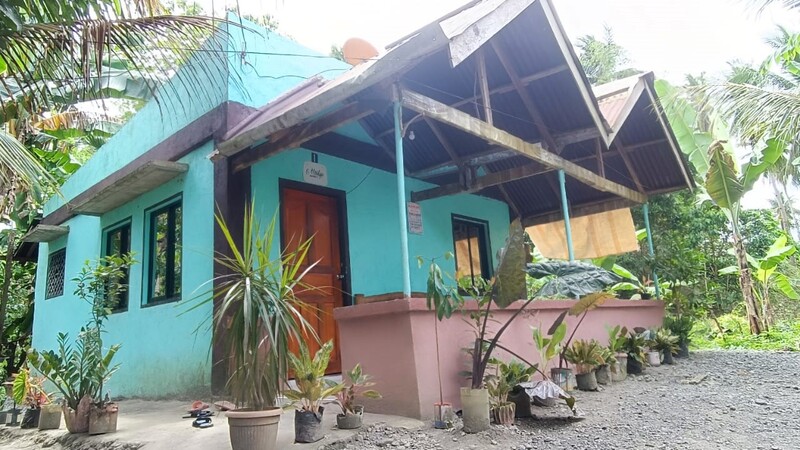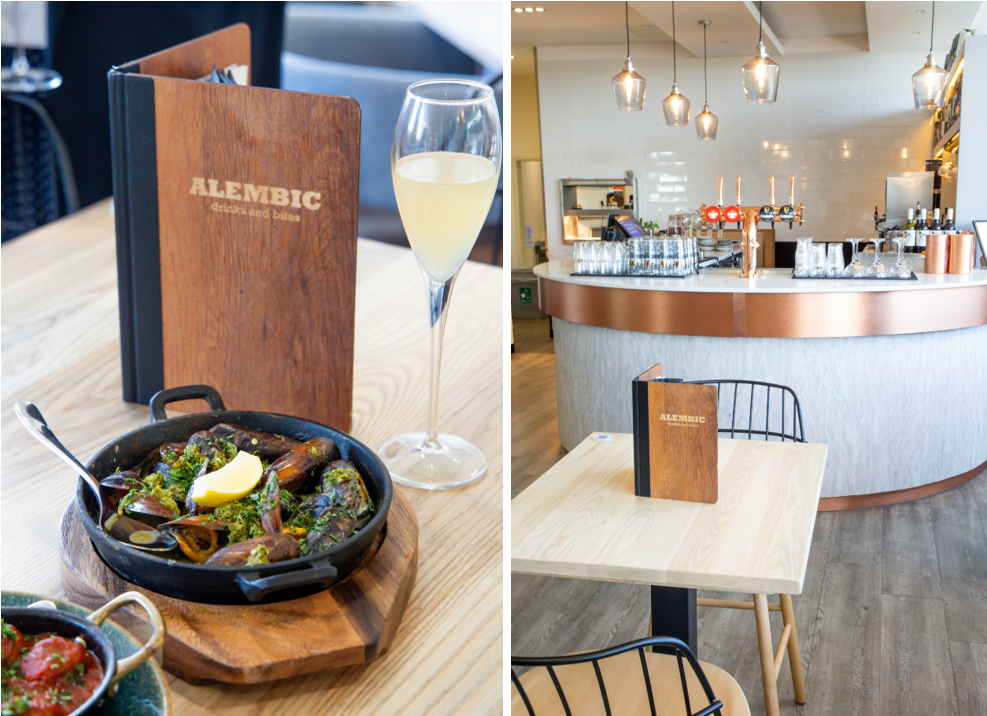 Introduction: When Women in Travel Retail+ gather at this week’s TFWA Asia Pacific show, they will be raising money for an outstanding cause, the Koma Karanth Foundation – a Hong Kong registered not for profit that is the group’s chosen charity for 2023.
Introduction: When Women in Travel Retail+ gather at this week’s TFWA Asia Pacific show, they will be raising money for an outstanding cause, the Koma Karanth Foundation – a Hong Kong registered not for profit that is the group’s chosen charity for 2023.
Koma Karanth Foundation is building a self-sustaining community in the impoverished municipality of Gloria, Oriental Mindoro in the Philippines. It will provide homes, education, an old age community centre, medical support and support for single women as they strive for self-sufficiency.
To date, the Koma Karanth Foundation has built 24 homes, an old age community centre and a tutoring centre for children. It has also provided solar streetlights, drilled water wells and connected them by pipe and pump into water tanks for the tribal community.
The Foundation provides transport for the children to go to school and provides fresh cooked lunch each day. It has also built and equipped a convenience store, a cake shop, tea shop, and other enterprises for single mothers to own and earn from.
The WITR 2023 charity was proposed by ARI Middle East (ARIME) Project & Design Manager and Sustainability Champion Tracy Ross, who has known Maitreyi Karanth, the foundation’s founder for over 25 years. WiTR aims to raise at least €15,000 to cover the cost of building three homes for the community and raise crucial global visibility for the cause.
On the eve of the Singapore event, Martin Moodie caught up with Maitreyi in Hong Kong to discuss the Foundation and what drove her to create it.
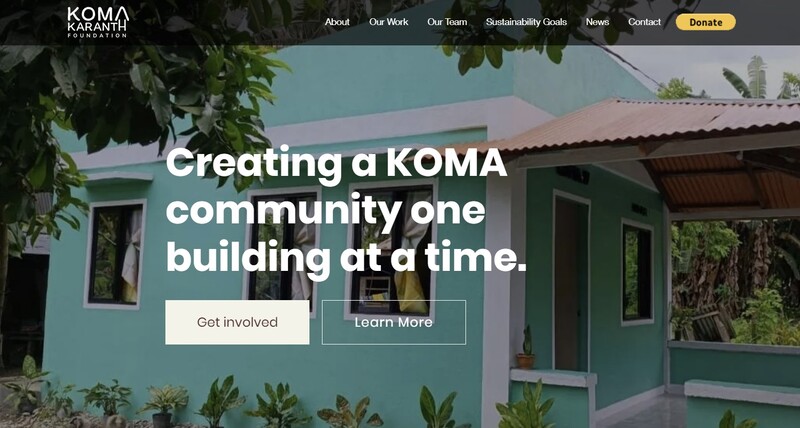
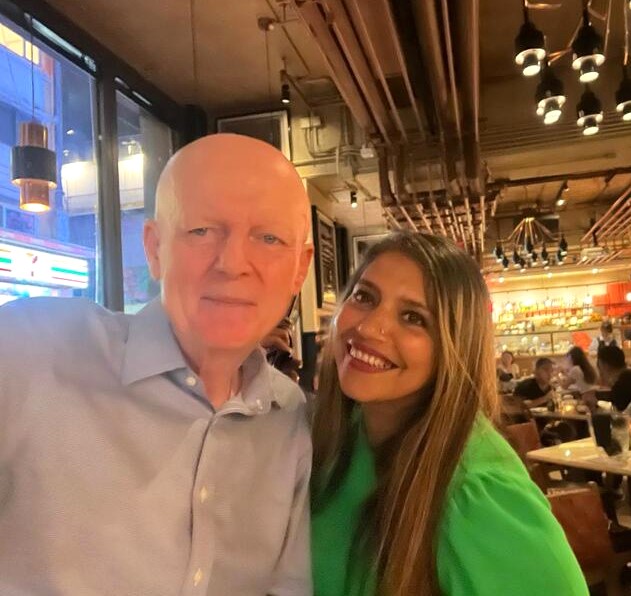
Prologue: Maitreyi Karanth bills herself on social media as comedian, actor, producer and poet. Throw in motivational speaker, event management company founder, maths tutor, Tedx Talks star, and CEO and you have barely scratched the surface in discovering this extraordinary woman. Humanitarian, philanthropist, dog rescuer, the list goes on.
Maitreyi’s life is the stuff of a film script (and surely will become one). It entails a journey from a small town in southwest India to Bahrain in the Middle East to a successful, albeit wholly unlikely, emergence as a successful stand-up comedian in Hong Kong – a calling she took up at seven years ago at the age of 44.
It is a life that has found voice (sometimes literally) in a myriad of professional and personal ways. And like all good stories, it should start at the beginning…
“I was born in Manipal, a small town in India,” Maitreyi begins. “But actually, I cannot tell my life story without talking about my mother and father. My father was this incredibly talented man, extremely generous, and also a bit of a feminist. He passed away in 1972, so I’m talking about many years ago. Those were things that were not common at all in a man back then.
“He grew up in abject poverty, the kind of poverty where they had to run to the temple for lunch otherwise they did not eat. He started writing for the local magazine at the age of 13 because he was that talented in writing. Ultimately he became a public speaker, and he was really trying hard to make something out of himself. He also started an organisation called Old for the Young [the letters O.L.D. spelling out ‘Operation Leadership Development’ for the young].”
Maitreyi’s father – full name Koni Mahabaleshwar Karanth but known as Ko Ma Karanth – headed a group of volunteers who would go to different schools and colleges in the state of Karnataka, offering leadership development training workshops.
“No school back then then would have paid for something like this, so it was very new,” Maitreyi recalls. “It was just passionate people getting together. I grew up sharing all his talents and I loved the stage. I loved to speak. I was five, six or seven years old and my father would take me out and introduce me to everybody. Which, again, for a Dad in those times to encourage his little girl to do all those things was not common at all.”
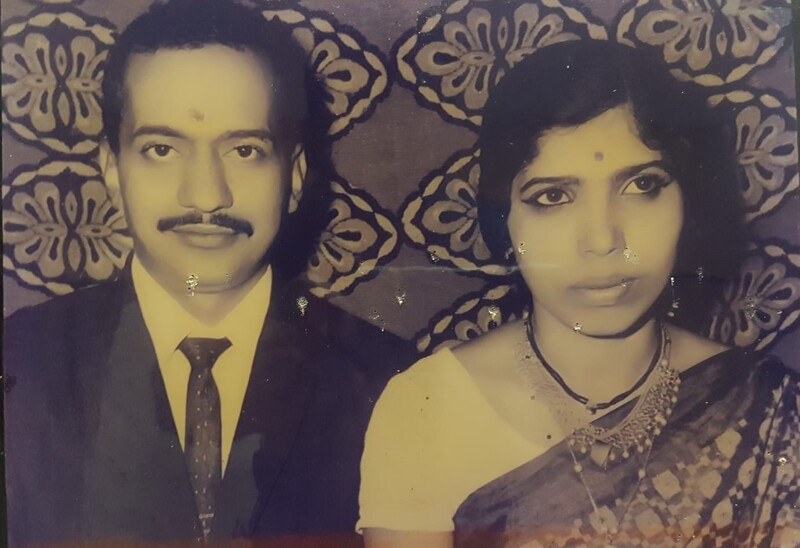
If Koma was an ebullient, outgoing character, then Maitreyi’s mother Radha, blinded from a young age by a genetic disorder called Retinitis pigmentosa, was diametrically opposite. “She was so worried about being the blind wife but also the best wife that she always stayed in,” Maitreyi recalls.
“She was always very scared with no confidence at all because of the way she grew up with her difficulty. My father and mother were completely opposite in the way they lived their lives but very much in love.”
Then, suddenly, tragically, everything changed. As Maitreyi’s grandmother (on her father’s side) lay dying in a Manipol hospital, relatives gathered at the family home. It was the first day of Diwali, the famed Festival of Lights and one of the most important occasions in the Indian calendar. It was also Children’s Day. And the day that Maitreyi’s father, aged just 40, passed from this world. “We heard this horrible snore coming out of my Dad’s room, so we all rushed in,” she recalls. “He couldn’t breathe. He couldn’t open his eyes.”
By the time the doctor arrived, it was too late. Radha, at just 32 years old and blind, was also now a widow. “My Dad had made no money yet, because he started with nothing, and he was so involved in his passions and volunteering,” Maitreyi remembers. “All he cared about was doing something with his talents and he was a very passionate man, so there was zero in the bank account.”
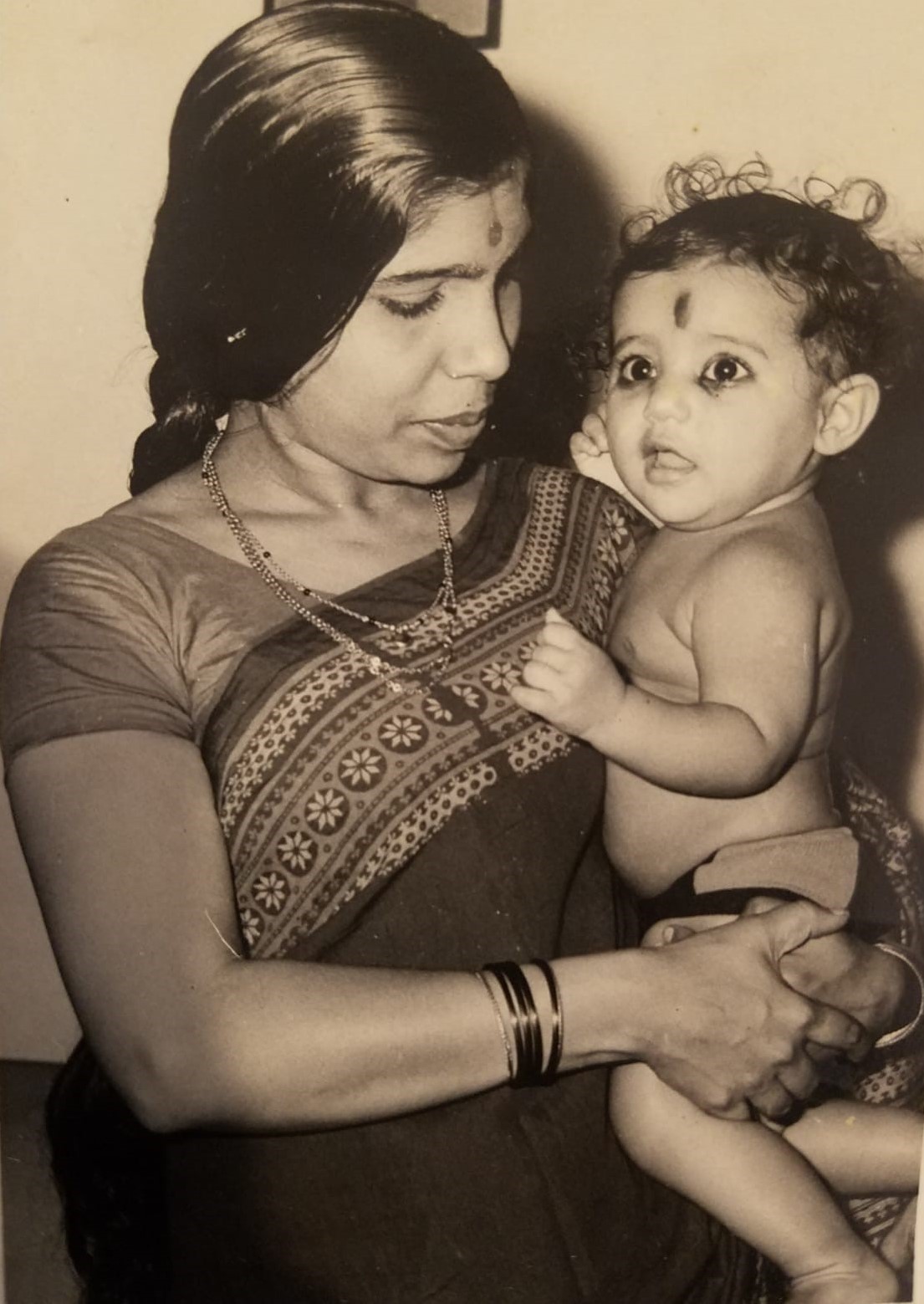
Eventually Radha was offered work in a bank as part of a scheme to help those with disabilities. Her job would be simply to open every piece of mail that arrived. She was terrified by the prospect not only of leaving the security of her home but also of being in a workplace among strangers. Maitreyi recalls at just nine years old cowering under the table, not knowing what to do while her mother anxiously weighed her options.
Somehow Radha found the strength to take the role. A cousin, Narasimha Murthy, took her to the bank each day while during school breaks Maitreyi would come to check on her.
And then a kind of miracle happened. “I watched her completely change in terms of independence,” Maitreyi remembers. “She’s a great storyteller. I would come during the breaks, and there would be all these guys sitting around her laughing and listening to her storytelling and I watched her blossom. That was actually women’s empowerment without me knowing it.”
Radha also understood financial planning and took a loan from the bank to build a tiny house for the family. “Whenever I think of things that are hard for me now, I wonder how she did it,” Maitreyi observes. “Because she couldn’t see. And she was a young widow and during those times the family wouldn’t allow her to dress up – not even a single item of jewellery – because they were so worried that she would attract unwanted attention.
“She had to tread so carefully to make sure no-one misunderstood her, because then that would affect us as a family. She knew that we needed to stay in Manipol because all the big educational institutions were in that town. She knew that with any misstep, she was gone. So that’s how she first lived. But then once she became confident, she started wearing colourful clothes and jewellery and wore this big, bright smile on her face.”
Amid this profound emotional upheaval, young Maitreyi retained her obsession with one day becoming an actress. “I didn’t want to do any of the girlie things, I just wanted to be on stage. I had this added pressure because I kept thinking I would fail my Dad if I didn’t do all the things I could do with the talent I had.
“So I was choosing my fights. My fights were never about boys or about wanting a new dress – my fights were only about wanting to be on stage. Can I please go to the neighbouring town to make that speech I would ask. If anyone asked me what I wanted to be, I would say I want to own a charity. Of course I also wanted to be an actress… earn all that money, and then give it to people.”
Fast forward to April 2023, as we sit chatting over drinks in a bar in Lan Kwai Fong, Hong Kong. “I guess I skipped the famous actress bit, but I did come to the same destination, all in a very long way,” she says with a smile.
In fact, the actress element nearly happened early on. When Maitreyi was 15 she was offered a role by a famous director who specialised in alternative films. The family believed it was the wrong move for a young fatherless girl and even Maitreyi herself decided she would have been “chewed up and spat out” by the industry. The male actor who made his debut in the same series is today one of South India’s biggest movie stars. But it’s a case of no regrets, Maitreyi insists. “I see that as a funny thing now in retrospect rather than as a missed opportunity.”
From there life took a different turn. At 24, Maitreyi agreed to an arranged marriage – “a wonderful guy – I couldn’t have asked for better because he let me be me” – which has lasted happily to this day. Pragmatism took over and Maitreyi and her husband Upendra (‘Uppi’) found their way to Bahrain where the couple lived happily for eight years (and where Maitreyi met Tracy Ross from Aer Rianta International-Middle East).

Finally taking to the stage
The urge to be on stage was suppressed but unsated. Eventually the couple moved to Hong Kong and slipped easily into a comfortable ex-pat lifestyle. All was well. Then things changed again. “When I turned 40, I just cried all day and night because I realised this is the age my father passed away,” Maitreyi remembers.
“I thought, ‘Every day from now is my blessing and I haven’t done anything with it yet. So what am I going to do?”
By this point she had a highly successful maths tutoring business, based on a degree and MBA in mathematics. But something told her it wasn’t right. “So I closed the business. I told everybody I wanted to go down a different route.”
Different was an understatement. She went to acting school, an illuminating but simultaneously sobering experience. “I thought. ‘All that I wanted to do when I was little but couldn’t do, I’m going to do now. However, acting school was a miserable experience – that is not a place you go to when you are 40 and a woman. I was the only 40 year old in my class and even the teacher asked me, ‘What are you doing here?’ Is this just for fun? Is there any point?”
Maitreyi stuck with it and gained her diploma. But not, subsequently, any roles – age, colour and lack of Cantonese all working against her. Instead she moved into producing films, including ‘My Hong Kong’, a television series shown in India.
Then, over a drink – “possibly two or three” – she was chatting and joking with her best friend, a Hong Kong-based Scotsman. He suggested Maitreyi would be a natural at stand-up comedy. “Him and I are always cracking jokes, especially after a glass or two, so I thought, ‘Why not? I love the stage. I love to write, and I can be funny. So I gave it a shot.”
More than a shot. Saurabh Pant, a renowned Indian comic, was in the audience as Maitreyi made her debut during an open mic session at the Takeout Comedy Club in Hong Kong. As she came off the stage, he approached her, complimented her performance and said, “Why don’t you open for me tomorrow?”
It was the kind of break she could only dream about. Despite the scepticism of the club manager when he saw Pant’s opening act was a novice, Maitreyi again proved a smash hit. “The owner said, ‘Why, don’t you gig here for me? So I started doing Friday nights over there, and the next thing I know I’m a stand-up comedian.
“Last year I did the first ever one-woman show in Hong Kong – a first for a woman in Hong Kong – and we sold out. Since then, every time I’ve done the show we have sold out every single night.”

Finally letting go
I ask Maitreyi if she thought of her father as she first stood on that stage. She responds, “Do you believe in divinity? Because I feel like my everything has a lot of divinity in it. Let me tell you a story. When I started doing all this comedy acting, I started crying a lot because I was always thinking about my Dad. Until that point I hadn’t thought of him as much as I started thinking of him once I was going on stage.
“Why? Because firstly I felt how proud and happy he would be. And secondly I thought, ‘Wow! He was this young when he died. These are the things that he loved doing as much as I love doing and with him it was cut so short, so quickly.
“I felt like I needed someone now with me. Since my Dad died, I’d never had any guidance and that bothered me a lot. I’d never had someone who pointed any way for me, or even had someone to discuss my talents with. My Mom and younger brother weren’t in that space. And society was constantly telling me, ‘Don’t do this. This is not the right way.’ I couldn’t discuss anything with anyone. So I felt this loneliness in my forties, because I thought if he was here we could talk it over and I could make big things out of it.”

The performances continued but so did the heartache and the tears. Then fate, or perhaps destiny, intervened. Over a period of weeks Maitreyi suffered terrible toothache. A visit to the dentist showed no apparent cause and the pain continued to blight her life.
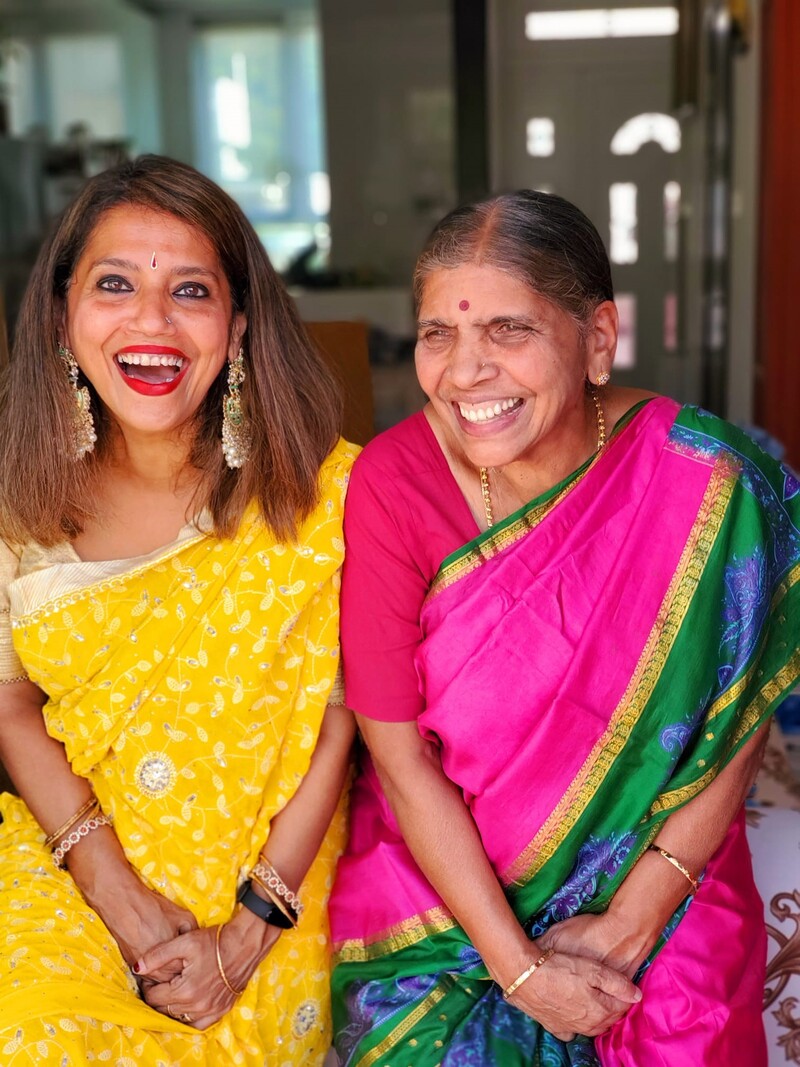
One evening while watching a stage performance, Maitreyi got talking with a fellow patron and told him about her toothache. The man made the seemingly preposterous suggestion that just by sitting next to her, he could do a body scan with his eyes and identify the problem. “I did not take him seriously of course and just laughed. But I said, okay. Tell me what my problem is.
“He did the scan then told me there was a light forming a path from my heart to my tooth. He said, ‘You have a pain in your tooth which is not toothache. It is actually a pain in your heart. You have an unresolved issue with your father. He wants you to let him go because you’re holding onto him with a lot of pain.”
Maitreyi, astounded, cried all the way home, not wanting to let her father go. She went to her room, sat in tears and then spoke to her father. “Ok Dad, I’m going to let you go.”
The next morning when she woke up the toothache had disappeared.
“After that experience of me letting him go, I opened up as well,” Maitreyi recalls. “There was a different goal. I was happier and lighter. It showed on me, and I started attracting people that were good for me from my talent’s perspective.”
Giving back
Her comedy career blossomed. During the pandemic she starred in ‘My Indian Boyfriend’, described as the first Indian-style movie made in Hong Kong’, and participated in ‘The Expats’, an upcoming American drama series starring actress Nicole Kidman. All the time, though, so did her care for others less privileged burned brightly.
Like many Hong Kong residents, she enjoyed the support of a Filipino helper, one of millions of overseas foreign workers striving to support their families back in the Philippines. Not only did her helper care for Maitreyi’s mother, now living in the family home in Hong Kong, but also her multiple rescue dogs (currently numbering 11).
“My helper is so wonderful with my blind mother and all my dogs,” she says. “So I always felt like I needed to give back. Thus every time there was a crisis in the Philippines such as a typhoon, I would do something.

“I have this ex-helper of mine, Sally, who was wonderfully generous. She was like a sister to me and I said to her, ‘Why don’t we get together, form a team of volunteers and start feeding the kids in the slums in the Philippines?”
Marilyn’s story
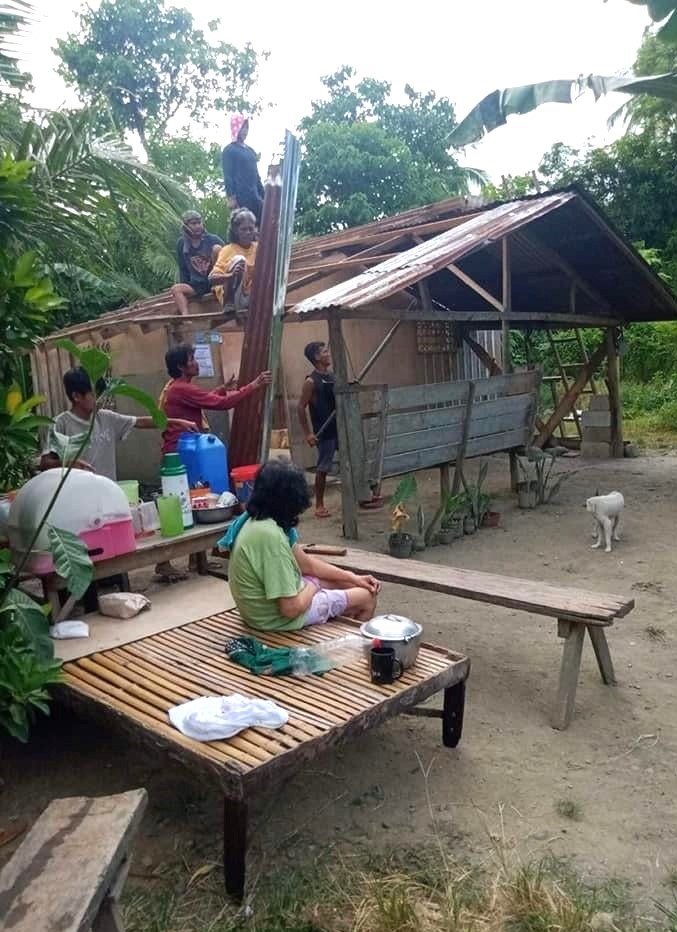
One day she said to Sally, let’s go to five homes of people in the Philippines who are really struggling and find out what they needed most. In Gloria municipality in the province of Oriental Mindoro, they met a woman in her late 30s called Marilyn who had suffered a stroke at a very young age, most likely prompted by lack of nutrition.
“She couldn’t talk properly. She couldn’t walk. She was living in a hut, so there was no toilet. She would have to drag herself to the outside toilet, which she struggled to do. So there was a lot of smell in a dwelling made out of mud and sticks. Her husband was a labourer but because of COVID he had no work, and she had a ten year-old son.
“I asked her what she needed most. She slurred her words and she replied she would like food for her family. So I told my team first of all we would clean the place up because I felt she needed some dignity; then get the family whatever is needed for the entire month.
“But I couldn’t sleep that night. Something kept telling me, ‘Give her a life of dignity. Give her a home.”
The next morning she called her team of volunteers together and said we have to build a house for this lady. They decided to ask Marilyn’s husband to assemble a team of labourers – all out of work due to the pandemic – to build the house.
Maitreyi funded the work and three days later, a team assembled to build a new house on the tiny plot of land where Marilyn lived. “We started building and I still have a picture [right] of Marilyn sitting there because she refused to sleep. She said she wanted to be propped up all day and to see her dream house being built. She just sat there watching.”
On day four, Maitreyi told her team to ask Marilyn if they could arrange for her to have her hair cut as it was all matted. “Madam,” she told Maitreyi while laughing and crying, “You are treating me like a queen.”
After her haircut Marilyn said she wanted to take a nap. She never woke up.
“I cried bucket loads,” Maitreyi recalls. “I wished she could have hung on. It was to be her dream home. So we gave her a beautiful funeral and we continued building the house.
“I had always thought that if I did anything that needed a name on it, I would sign it in Dad’s name as Koma. But at that moment I knew this house belonged only to Marilyn as she had so much of her heart set in it. So we called it Marilyn.”
Marilyn’s son duly put up a nameplate. Then Maitreyi thought, why stop now? We have a building team, let’s keep building houses. It was the height of the COVID crisis so the labourers would otherwise have no work. Maitreyi decided that each of the team would first get a house, after which they would continue to work on those for others.
For a long time Maitreyi funded the project herself from her show or savings. When the monies dried up, she asked for support on Facebook and started attracting sponsors.
As of May 2023, the team – proudly calling themselves the Koma Boys, have built 24 homes in Gloria; a school opened during COVID when regular schools were closed; and an old age community centre. Koma Tutoring School gives the kids, all from poor families, snacks.
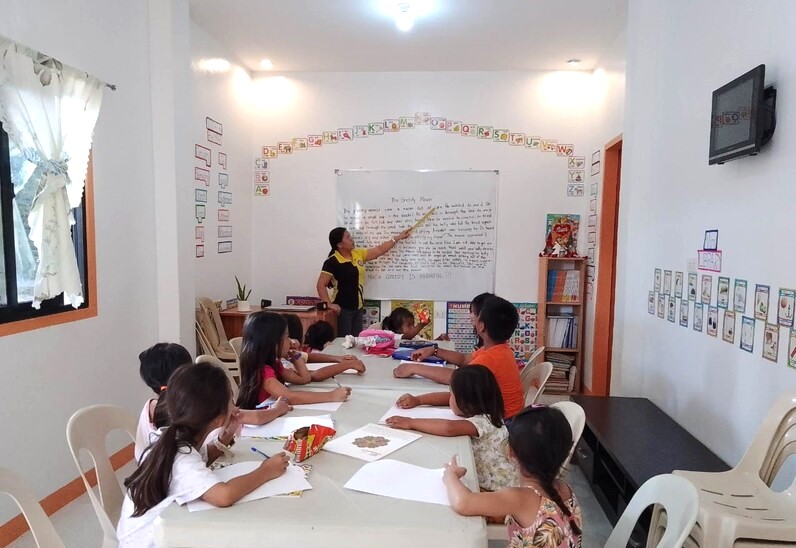
The Koma Koranth Foundation also secured water supply to support the community that lives at the top of a mountain. Its representatives had gone to the government many times over the past 30 years seeking water and electricity, each time in vain. So the families (and often the children) had to trek for two hours to the river at the bottom of the mountain to get water.
Maitreyi asked the government to supply a pump at a cost of around US$6,500 with drilling and piping. This was not a woman to be denied and the authorities duly agreed.
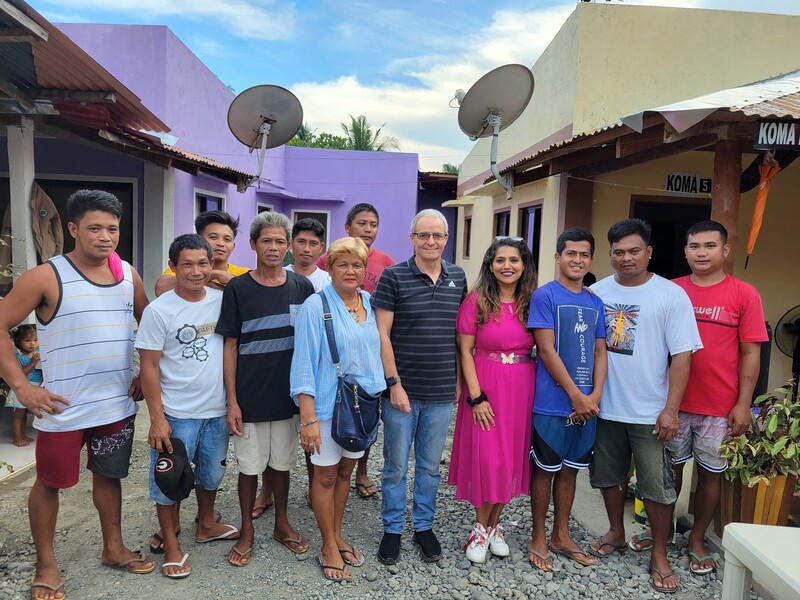
Last month, on 18 April, the pumping began. Suddenly, amid scenes of great celebration, 26 tribal families had fresh running water. “Previously because they had to walk for two hours to get water, a lot of the kids would skip school or stop completely,” Maitreyi notes. “During rains it was impossible to get down the mountain, and no vehicle goes up because there’s no road, just forest.
“So we got a sponsor to fund a van that picks them up every morning from below the mountain to the school, then brings them to our tutoring school. After lessons, it then takes them back to the foot of the mountain. That reduces the walk a lot and the kids love the van. They’d never sat in one before this.
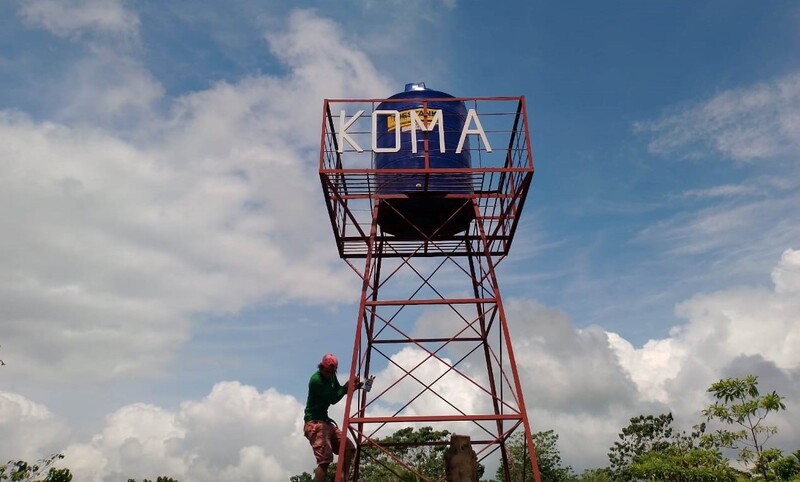
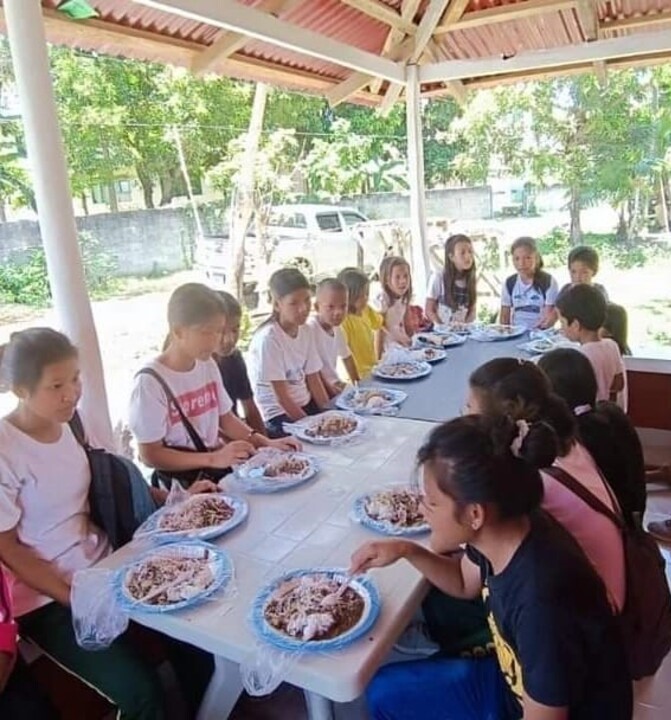 “Then we heard from the school that the kids did not bring lunch because they can’t afford it. They just sat around watching everybody else eat. So when we built house number 24, which is just a minute away from the school, I said why not have the lady owner cook lunch for these kids?
“Then we heard from the school that the kids did not bring lunch because they can’t afford it. They just sat around watching everybody else eat. So when we built house number 24, which is just a minute away from the school, I said why not have the lady owner cook lunch for these kids?
“As a result, now during lunch time they go to her home, eat a nice meal [pictured right], and then return to school while we give the lady a salary for the cooking and provide the ingredients.”
Today the Koma Karanth Foundation – registered in Hong Kong as a not for profit – continues its work at pace, supported by numerous organisations and individuals impressed by Maitreyi’s work. The enduring friendship with Tracy Ross saw the Foundation nominated, then chosen, as the WiTR+ charity of the year for 2023.
“Tracy knew me as that naive young woman in Bahrain who didn’t know what to do with herself so she’s very proud of where I am today,” Maitreyi explains. “She was just waiting for me to register the charity, and once I did she said she was going to nominate us.
“Then I got a call from her in the middle of the night. ‘I don’t care if you’re sleeping. Wake up!’ And she was jumping up and down, saying you’ve been selected. I still didn’t know how to react. I didn’t know anything about WiTR+ or the visibility so this was a huge learning curve for me.”
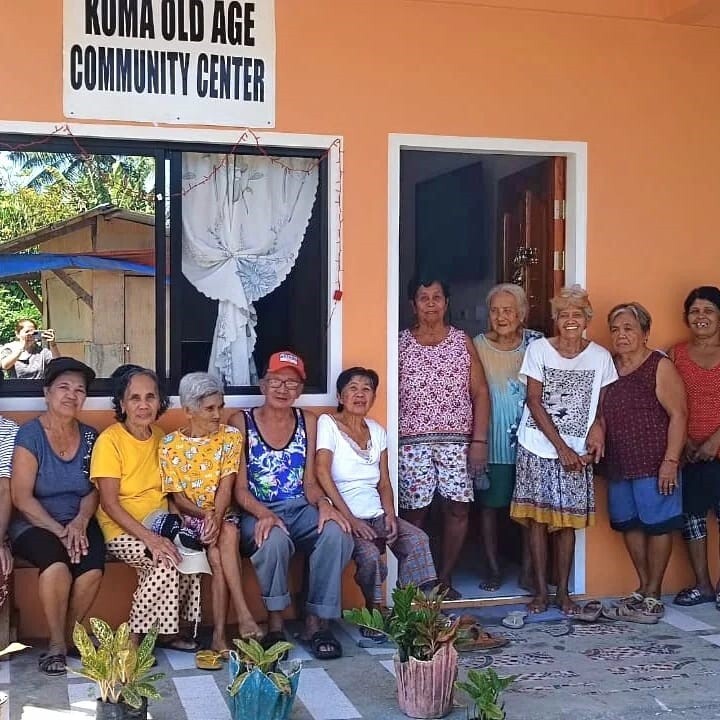
The WiTR+ funds will go towards Koma Karanth Foundation’s ongoing mission to build a Koma community on a one-hectare plot in Gloria. When complete, it will provide homes, education, an old age community centre, medical support and support for single women as they strive for self-sufficiency.
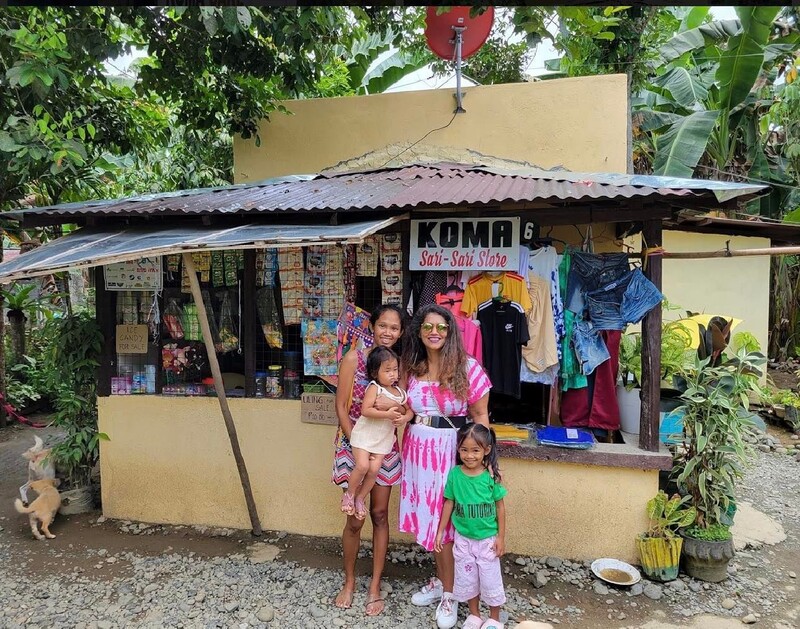
“So far we have been building houses for people who have land but have no money to build a house,” Maitreyi explains. “But now we are buying land and building about 30 homes. We built a convenience store that will be run by one of the single mothers. There will be a self-sustaining vegetable garden, so they can use those vegetables for their food.
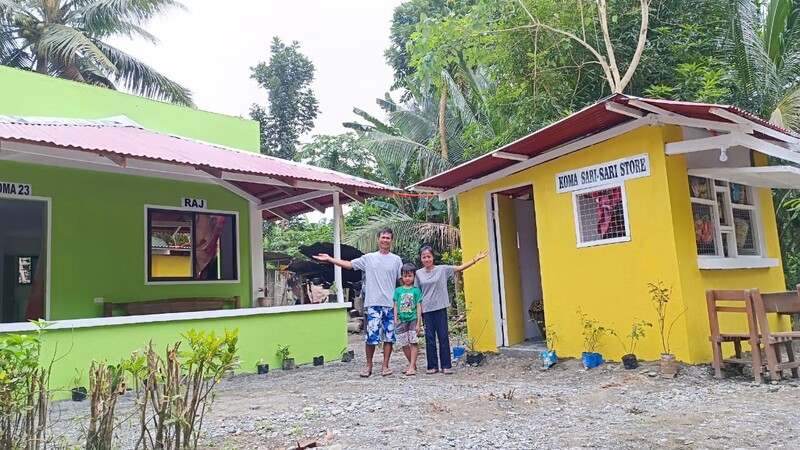
“The idea is to build a community that will help each other and where they can live happily. The houses will be leased for free to the residents who can stay there for as long as they want provided they adhere to being part of the kind of community that we are trying to establish.
“If that becomes a successful model, then we will build more communities like it.”
Given Maitreyi’s unswerving passion and determination, that success seems assured. Koni Mahabaleshwar Karanth may have long passed but in the Koma Karanth Foundation and in his daughter’s talents and deeply rooted sense of mission, his legacy lives on. ✈




